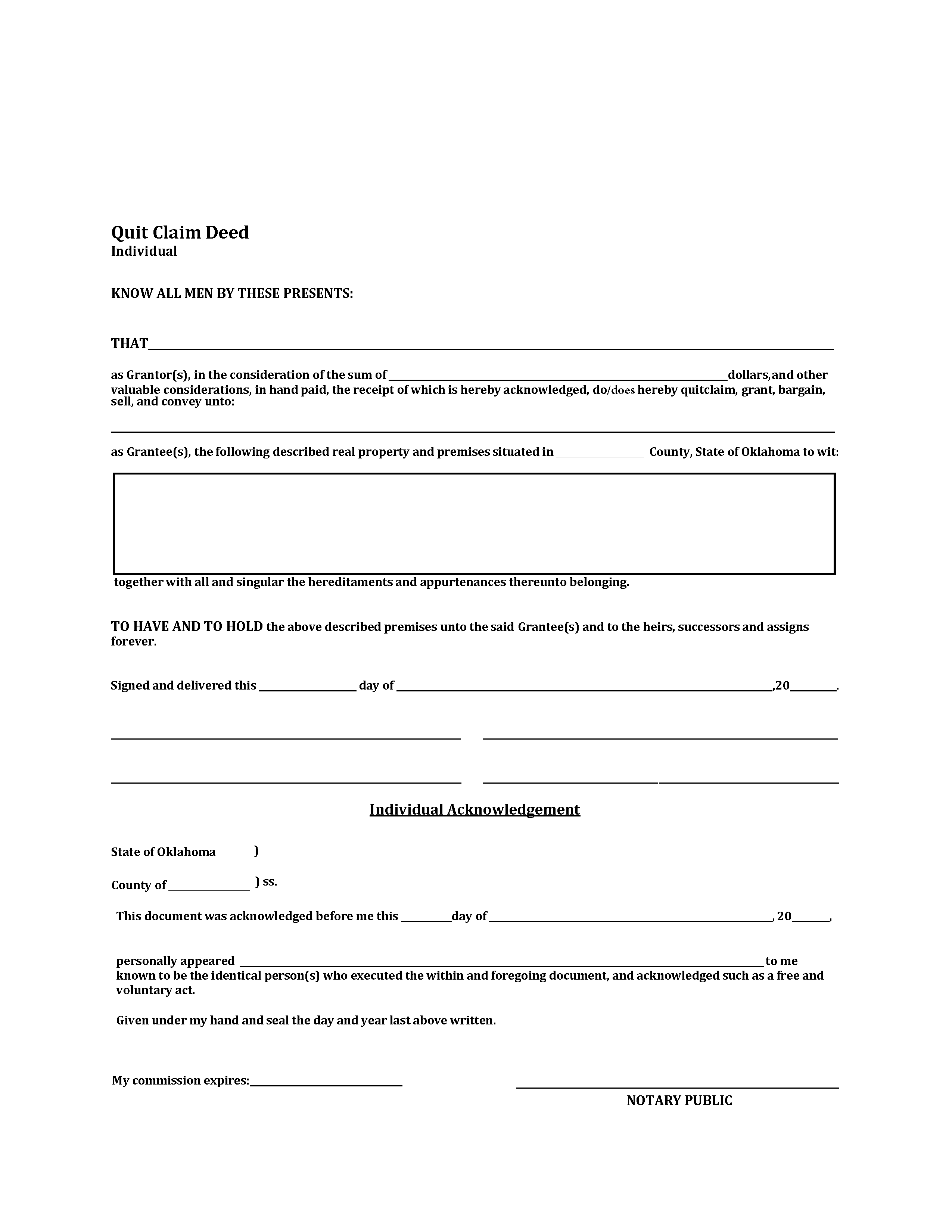Oklahoma Quit Claim Deed Form
Last updated May 16th, 2025
An Oklahoma quit claim deed is a legal form in which property rights are transferred from one owner to another without any guarantees regarding the quality of the title. The owner who transfers property, known as the “grantor,” is not liable for any liens, easements, or other claims that could cloud the property title. They also do not guarantee that they have the right to transfer.
Recording Details
- Signing Requirements – The grantor and a notary public must sign the document. If the property is a homestead, the grantor’s spouse must also sign.[1]
- Where to Record – County Clerk’s Office[2]
- Recording Fees – $18 ($8 for the first page + $10 preservation fee); $2 for each additional page (as of this writing)[3]
Formatting Requirements
All deeds submitted for recording must adhere to the following physical requirements
[4]:
- Margins: Top margin of at least 2 inches, every other margin at least 1 inch.
- Spacing: Enough free space for the clerk to put documentary stamps, mortgage tax certification, and recording information.
- Paper: No larger than 8.5″ x 14″ and be xerographically reproducible.
- Ink: Dark enough to be reproduced.
Quit Claim Deed (Preview)

